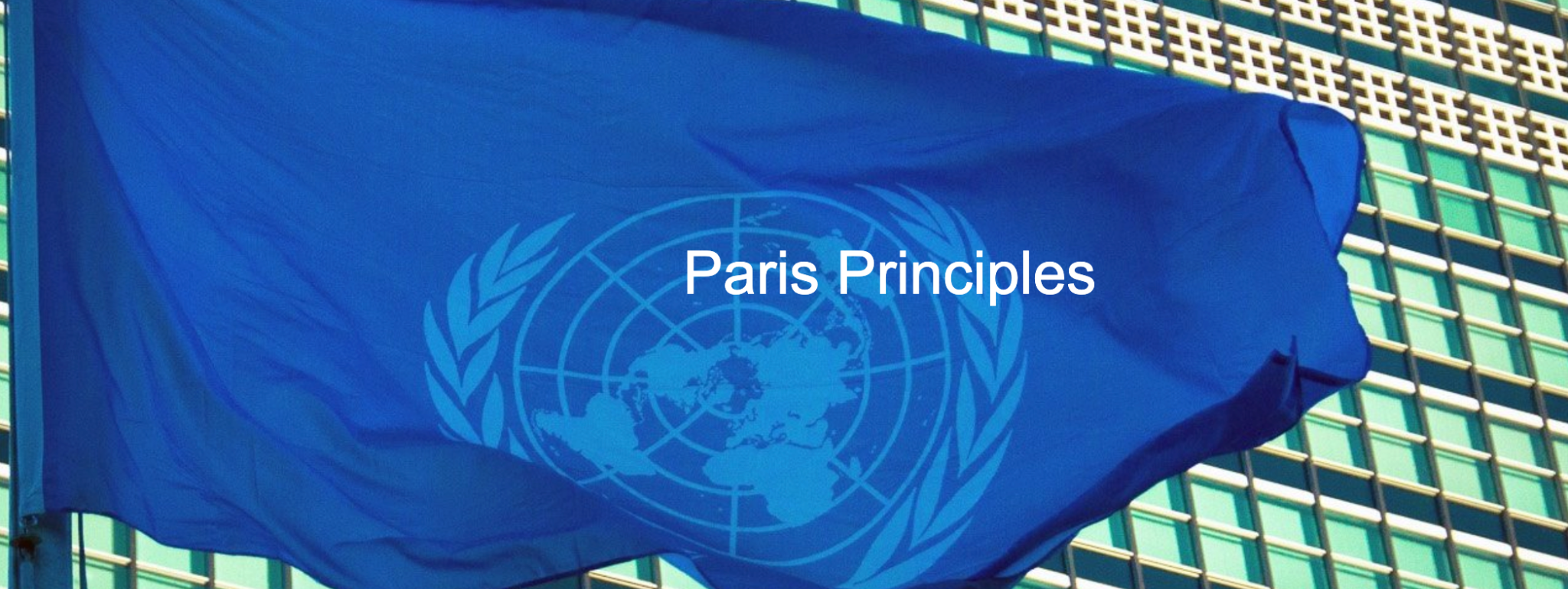Paris Principles on NHRIs

- 21 May 2024
Why is it in the News?
For the second year in a row, an organisation affiliated with the UN human rights office has deferred accreditation for India’s human rights body, the National Human Rights Commission (NHRC).
What are the Paris Principles?
- The Paris Principles, formally Principles Relating to the Status of National Human Rights Institutions, which were adopted by the UN General Assembly on December 20, 1993, set out minimum standards that NHRIs must meet in order to be considered credible and to operate effectively.
- The Paris Principles lay down six main criteria to determine which NHRIs are functioning effectively and would receive accreditation from GANHRI.
- They are
- broad mandate based on universal human rights norms and standards
- autonomy from the government
- independence guaranteed by the statute or Constitution
- pluralism, including membership that broadly reflects their society
- adequate resources and
- adequate powers of investigation
- These Principles also say that NHRIs should be equipped to receive complaints and cases brought by individuals, third parties, NGOs, trade unions, or other organisations representative of professionals such as lawyers and journalists.
Accreditation:
- Global Alliance of National Human Rights Institutions (GANHRI), which represents about 120 national human rights institutions, is responsible for reviewing and accrediting these institutions in compliance with the Paris Principles every five years.
- GANHRI acts through its Subcommittee on Accreditation (SCA), which categorises member NHRIs into two groups, ‘A’ and ‘B’. As of November 29, 2023, 120 NHRIs were accredited by GANHRI, 88 of which were given an ‘A’ rank, indicating full compliance with the Paris Principles; the remaining 32 were put under ‘B’, indicating partial compliance.
Why has India’s Accreditation Been Put on Hold?
- India’s accreditation status was put on hold after the Sub-Committee on Accreditation (SCA) meeting on May 1 in Geneva.
- The SCA, which meets twice a year, scrutinizes each country’s human rights institution.
- The May 1 meeting, chaired by New Zealand with participation from South Africa, Sri Lanka, and Spain, highlighted several concerns about the National Human Rights Commission (NHRC) of India.
- Issues raised include a lack of transparency in NHRC appointments, conflicts of interest with police overseeing investigations, and no minority or female representation on the panel.
- Additionally, nine human rights organizations, including Amnesty International and Human Rights Watch, expressed concerns about India’s human rights record, citing increasing restrictions on civic space and discrimination against minorities.
- UN human rights experts also highlighted “attacks on minorities, media, and civil society” in India.
What Happens if India Loses Accreditation?
- If India loses its 'A' status accreditation, its National Human Rights Institution (NHRI) will face significant limitations. With 'A' status, NHRIs can participate in the UN Human Rights Council, its subsidiary bodies, and some UNGA bodies and mechanisms, and hold full membership in the Global Alliance of National Human Rights Institutions (GANHRI) with voting and governance rights.
- With 'B' status, NHRIs can attend GANHRI meetings but cannot vote or hold governance positions. Without proper accreditation, India’s NHRC cannot represent the country at the UN Human Rights Council, vote, or hold governance roles.
- India’s review has been deferred, and a final decision is yet to be made.
What is India’s Record of Accreditation with GANHRI?
- India’s National Human Rights Commission (NHRC) was established in 1993 and first accredited by the Global Alliance of National Human Rights Institutions (GANHRI) in 1999.
- It achieved 'A' status in 2006 and retained it in 2011.
- However, in 2016, accreditation was deferred due to issues like the appointment of political representatives and lack of gender balance and pluralism in the NHRC staff.
- Despite these concerns, the NHRC regained 'A' status in 2017.
- In 2023, the Sub-Committee on Accreditation (SCA) withheld India’s accreditation again, citing six reasons, including the NHRC’s inability to operate without government interference and the presence of too many government officials and individuals affiliated with the ruling party in the commission.
